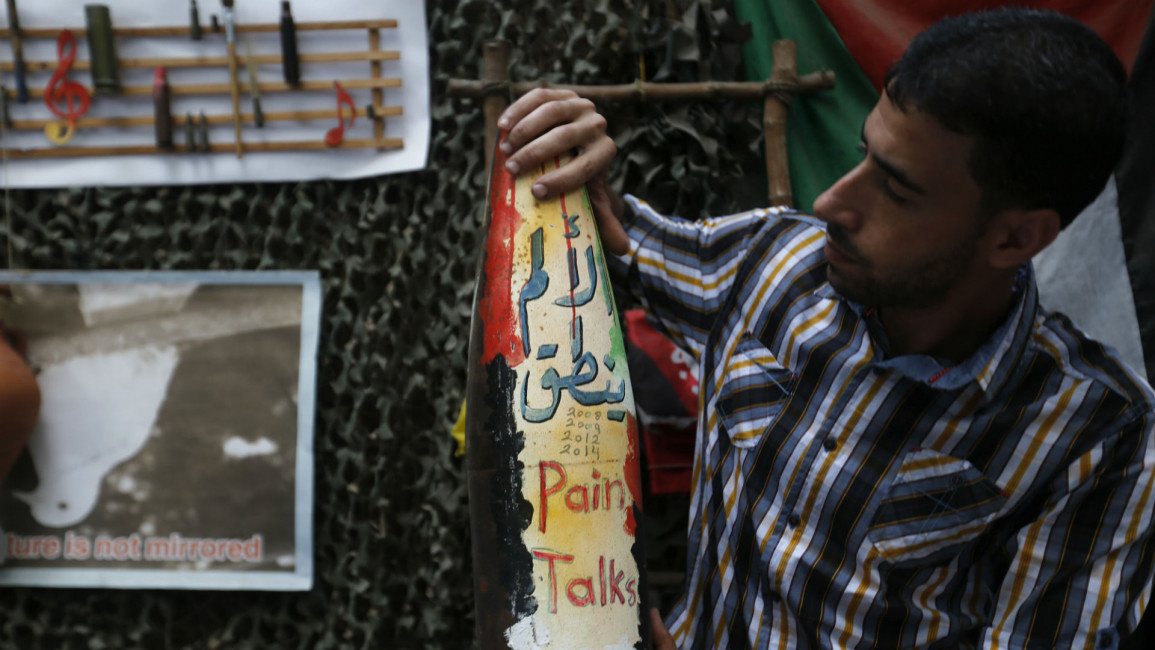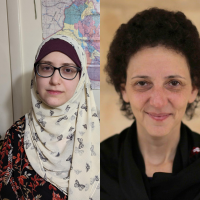
Gaza's way
When Mahmoud Darwish wrote his poem Silence for Gaza years ago in homage to the Gazan resistance, he said: "Gaza's waist is wrapped with mines… and explodes… It is not death nor suicide. It is Gaza's way of announcing it is worthy of life." I think Darwish, who never repeats himself, understood Gaza in a way no other poet has before, because with these words he revealed the true city of Gaza, maybe for the first time in the history of writing - a city caught up in resistance, where people and the sea are daily sources of hope and amazement, and with an identity as clear as Palestine on the road of eternity.
On the tenth night of Ramadan this year, Gaza found itself on a date with destiny where it could yet again to show itself worthy of life. Its waist was wrapped with mines and it exploded - but it neither died nor committed suicide. On the contrary, it continued to resist in the way it understands resistance, as it has learnt resistance and taugh
| Gaza has always defied its leaders, whomever they have been |
t it to Gazans, in the way that suits it and suits its rebellious name with its eternal Palestinian flavour.
Only those who have practiced resistance in some form can understand it. Resistance does not have one unchanging form. The forms that it takes vary and do not recur, even if its causes and objectives do. By one of various definitions, resistance is the revolutionary equivalent of freedom.
How does Gaza manage it? Or rather, how has it been managing years and years of heroic defiance resisting the enemy, and insisting on life even though these paths inevitably lead to death? What does Gaza do to keep the struggle alive despite the blockade, a blockade imposed more by relatives than strangers?
But Gaza gets on with it without waiting for anyone. It forges ahead whatever the obstacles, and pays no attention to others. It goes forward without turning back. It knows its enemy well, and never believes it. It knows its brothers and sisters well, so it does not overburden them with good or bad intentions and does not expect anything from them. It knows its path well, so it does not try to take shortcuts. It goes directly forward through death leading to life, through homes built on the rubble of other homes, and children born in the smoke of explosions that grow up and go to school through the same path of struggle and resistance.
Investing hope in the future
Gaza resists with both life and death, and with all the skills of resistance it has been given, and with all it has learnt from constant experiences of living on the edge of hope. Gaza’s hope does not end, because hope comes from God - and because Gaza has grown accustomed to investing hope in everything it has gone through and in everything that comes its way. It has grown as its population has grown, and after every new explosion a new hope has emerged from under the rubble. With every Gazan martyr that says goodbye to life smiling because he has triumphed in the decisive moment of his cosmic existence, a new Gazan child is born in a constant cycle of rebirth, in a partnership that is always standing with tomorrow.
Gaza has always defied its leaders, whomever they have been, as it defies its enemies and supposed friends, and itself and all who want to exploit its struggles or use it as a ladder to climb to any other goal than freedom. When Gaza explodes again in the face of the enemy and its supposed friends, it renews for itself and all those that have taken it upon themselves the unique covenant - that it will keep hope, freedom and struggle alive. In real life on the real ground and in the real sea and only through them does it acquire the meaning of resistance, without a negotiating table, without ambushes by politicians and without a special status for leaders, whatever their relationship is with Gaza. Not only because it is a city that defies its enemy but because it has epitomised the greater meaning of Palestine and the Palestinians, without claiming that it represents Palestine or without speaking in the name of Palestine or the Arabs. It is just Gaza.
This article is an edited translation from our Arabic edition.
Opinions expressed in this article remain those of the original author and do not necessarily reflect the opinions of Al Araby Al Jadeed, its editorial board or staff.



